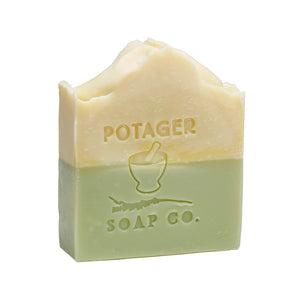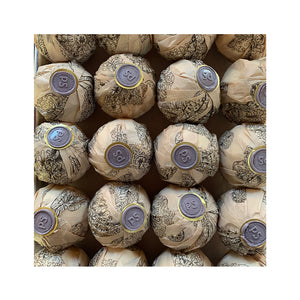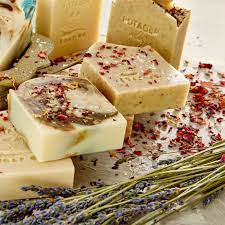How to Use Natural Soap for Sensitive Skin
May 09, 2024

For those with sensitive skin, finding the right skincare products that won't irritate or exacerbate skin issues can be a challenge. Natural soaps, with their gentle and nourishing ingredients, can be an excellent choice. Here's a comprehensive guide on how to use natural soap for sensitive skin, ensuring a soothing and beneficial experience.
Understanding Natural Soap
Natural soaps are crafted from a mix of natural oils, butters, and other plant-based ingredients. Unlike commercial soaps, they are devoid of harsh chemicals, synthetic fragrances, and artificial colorants, which are common irritants for sensitive skin.
Instead, natural soaps often contain soothing ingredients like oatmeal, shea butter, and essential oils like lavender or chamomile, which are known for their skin-calming properties.
Choosing the Right Natural Soap
- Look for Moisturizing Ingredients: Ingredients like coconut oil, olive oil, shea butter, and cocoa butter are excellent for sensitive skin. They provide hydration and a protective barrier that helps prevent irritation.
- Select Appropriate Essential Oils: While essential oils can offer therapeutic benefits, some may be too harsh for sensitive skin. Opt for soaps with lavender, chamomile, or calendula, which are gentle and known for their soothing effects.
- Avoid Allergens and Irritants: Stay clear of soaps with ingredients that can trigger allergies. Always check the label for common irritants like sulfates, parabens, and even some essential oils that are not suited for sensitive skin.
- Patch Test: Before fully incorporating a new soap into your routine, perform a patch test by applying the soap to a small area of your skin. Wait 24 hours to ensure there is no adverse reaction.

Using Natural Soap on Sensitive Skin
- Gentle Application: When bathing, lather the soap in your hands first, then use your hands to apply the suds to your skin. This method is gentler than rubbing the soap bar directly onto the skin, which can be abrasive.
- Warm Water is Best: Use lukewarm water for washing, as hot water can strip the skin of its natural oils, leading to dryness and irritation.
- Avoid Over-Washing: Cleanse your skin no more than twice a day to prevent excessive stripping of natural oils. Over-washing can lead to dryness and irritation.
- Soft Towel Patting: After washing, gently pat your skin dry with a soft towel instead of rubbing. This helps prevent any potential irritation from excessive friction.
- Moisturize Immediately: Apply a gentle moisturizer immediately after washing to lock in moisture and protect the skin barrier.Maintenance and Care of Natural Soap
- Keep It Dry: Store your soap in a dry, ventilated area away from direct streams of water to extend its lifespan and prevent it from becoming mushy.
- Soap Dish: Use a soap dish with proper drainage to keep your natural soap dry between uses.
- Regular Rotation: Rotate between different natural soaps to give your skin a variety of beneficial ingredients and prevent potential reactions from continuous exposure to the same compounds.
When it comes to caring for sensitive skin, selecting the right products is crucial to avoid irritation and maintain skin health. Natural soaps, like those offered by Potager, are an excellent choice for anyone with delicate skin. At Potager, we understand the unique needs of sensitive skin, which is why our soaps are crafted using only natural and gentle ingredients. Each bar is made with organic essential oils and other plant-based components that nourish and soothe the skin without harsh chemicals.
Potager's commitment to purity and quality ensures that our soaps are not only safe but also beneficial for all skin types, particularly those that are sensitive. By choosing Potager, you are opting for a skincare product that respects the natural balance of your skin while providing the hydrating and healing properties it needs to stay healthy and radiant. Trust Potager to keep your sensitive skin clean, calm, and well-cared for with our naturally gentle soap offerings.

